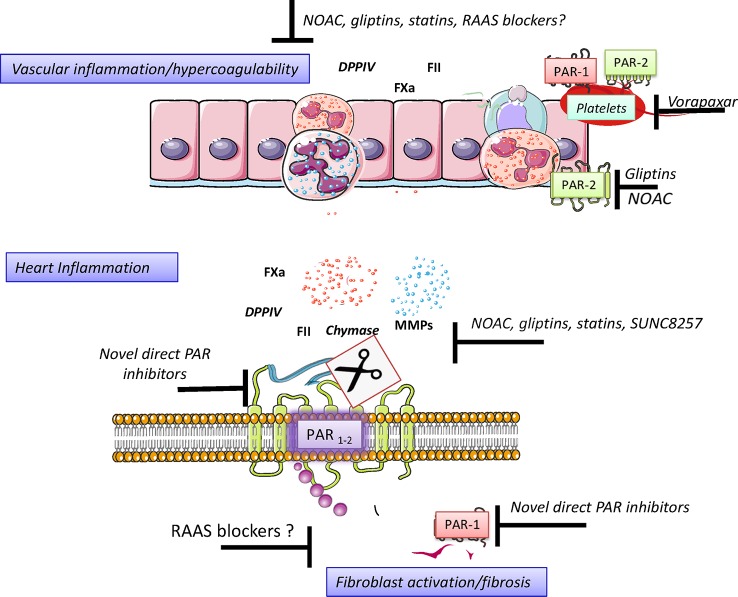Figure 2.
Serine proteases mechanisms of action. Serine proteases are a particular types of endoproteases involved in endogenous processes including the activation of inactive peptide (zymogens; i.e., coagulation cascade), inactivation of bioactive peptides (GLP-1 as DPP-4). Serine protease activity is controlled homeostatically by endogenous inhibitors (serpins). Furthermore, serine protease may also activate specific protease activated receptors (PAR) by cleaving the N-extracellular portion of the receptor and producing a tethered ligand. Such ligand interaction with the specific site of the trans-membrane-portion of the receptor induces G-protein recruitment and intracellular cascade including G-protein-dependent and -independent cascades. Figure created using Servier medical art templates.

